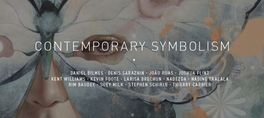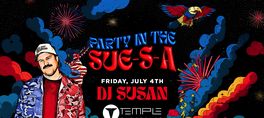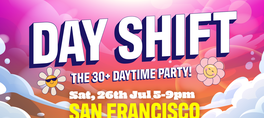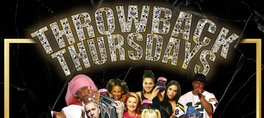On November 7, 1978, Californians decisively voted down Proposition Six, a statewide initiative that would have banned lesbian and gay people and supporters of lesbian and gay rights from teaching in public schools. The battle against the proposition, sponsored by State Senator John Briggs, took place in the context of a wave of homophobic ballot measures around the United States. The No on Six campaign was the first to succeed in defeating anti-gay forces in the voting booth. Among the best remembered leaders of the effort was Harvey Milk, but many other groups and individuals also made vital contributions. A new exhibition at the GLBT History Museum, "The Briggs Initiative: A Scary Proposition," will mark the 40th anniversary of the campaign. Drawing on posters, buttons, flyers, photographs and other scarce materials from the archives of the GLBT Historical Society, the show will recount the story of the fight to defeat Briggs and advance equality for LGBTQ people and their allies in California. The opening reception will feature brief remarks by community curators Sue Englander, Paula Lichtenberg and Glenne McElhinney, all of them veterans of the No on Six campaign. Light refreshments will be served.
No on Six bumper sticker produced by the Bay Area Coalition Against the Briggs Initiative (1978). Collection of the GLBT Historical Society.
Protest of Bigots contingent at the Gay Freedom Day Parade, June 26, 1977. Marie Ueda Collection (collection no. 2006-12), The GLBT Historical Society.
LOCATIONThe GLBT History Museum4127 18th St., San Franciscowww.glbthistory.orgADMISSION$5.00 | Free for membersJOIN THE GLBT HISTORICAL SOCIETYBecome a member of the GLBT Historical Society for free admission to the exhibition opening and other programs, free museum admission, discounts in the museum shop and other perks: goo.gl/WjkGSnPhoto Credit: "Never Again! Fight Back!" (San Francisco: Too Much Graphics, 1978); three-color serigraph poster sold to raise funds for the campaign against the Briggs Initiative. Collection of the GLBT Historical Society.
show less
No on Six bumper sticker produced by the Bay Area Coalition Against the Briggs Initiative (1978). Collection of the GLBT Historical Society.
Protest of Bigots contingent at the Gay Freedom Day Parade, June 26, 1977. Marie Ueda Collection (collection no. 2006-12), The GLBT Historical Society.
LOCATIONThe GLBT History Museum4127 18th St., San Franciscowww.glbthistory.orgADMISSION$5.00 | Free for membersJOIN THE GLBT HISTORICAL SOCIETYBecome a member of the GLBT Historical Society for free admission to the exhibition opening and other programs, free museum admission, discounts in the museum shop and other perks: goo.gl/WjkGSnPhoto Credit: "Never Again! Fight Back!" (San Francisco: Too Much Graphics, 1978); three-color serigraph poster sold to raise funds for the campaign against the Briggs Initiative. Collection of the GLBT Historical Society.
On November 7, 1978, Californians decisively voted down Proposition Six, a statewide initiative that would have banned lesbian and gay people and supporters of lesbian and gay rights from teaching in public schools. The battle against the proposition, sponsored by State Senator John Briggs, took place in the context of a wave of homophobic ballot measures around the United States. The No on Six campaign was the first to succeed in defeating anti-gay forces in the voting booth. Among the best remembered leaders of the effort was Harvey Milk, but many other groups and individuals also made vital contributions. A new exhibition at the GLBT History Museum, "The Briggs Initiative: A Scary Proposition," will mark the 40th anniversary of the campaign. Drawing on posters, buttons, flyers, photographs and other scarce materials from the archives of the GLBT Historical Society, the show will recount the story of the fight to defeat Briggs and advance equality for LGBTQ people and their allies in California. The opening reception will feature brief remarks by community curators Sue Englander, Paula Lichtenberg and Glenne McElhinney, all of them veterans of the No on Six campaign. Light refreshments will be served.
No on Six bumper sticker produced by the Bay Area Coalition Against the Briggs Initiative (1978). Collection of the GLBT Historical Society.
Protest of Bigots contingent at the Gay Freedom Day Parade, June 26, 1977. Marie Ueda Collection (collection no. 2006-12), The GLBT Historical Society.
LOCATIONThe GLBT History Museum4127 18th St., San Franciscowww.glbthistory.orgADMISSION$5.00 | Free for membersJOIN THE GLBT HISTORICAL SOCIETYBecome a member of the GLBT Historical Society for free admission to the exhibition opening and other programs, free museum admission, discounts in the museum shop and other perks: goo.gl/WjkGSnPhoto Credit: "Never Again! Fight Back!" (San Francisco: Too Much Graphics, 1978); three-color serigraph poster sold to raise funds for the campaign against the Briggs Initiative. Collection of the GLBT Historical Society.
read more
No on Six bumper sticker produced by the Bay Area Coalition Against the Briggs Initiative (1978). Collection of the GLBT Historical Society.
Protest of Bigots contingent at the Gay Freedom Day Parade, June 26, 1977. Marie Ueda Collection (collection no. 2006-12), The GLBT Historical Society.
LOCATIONThe GLBT History Museum4127 18th St., San Franciscowww.glbthistory.orgADMISSION$5.00 | Free for membersJOIN THE GLBT HISTORICAL SOCIETYBecome a member of the GLBT Historical Society for free admission to the exhibition opening and other programs, free museum admission, discounts in the museum shop and other perks: goo.gl/WjkGSnPhoto Credit: "Never Again! Fight Back!" (San Francisco: Too Much Graphics, 1978); three-color serigraph poster sold to raise funds for the campaign against the Briggs Initiative. Collection of the GLBT Historical Society.
show less
Date/Times:
4127 18th Street, San Francisco, CA 94114
The Best Events
Every Week in Your Inbox
From Our Sponsors
UPCOMING EVENTS
Great suggestion! We'll be in touch.
Event reviewed successfully.









